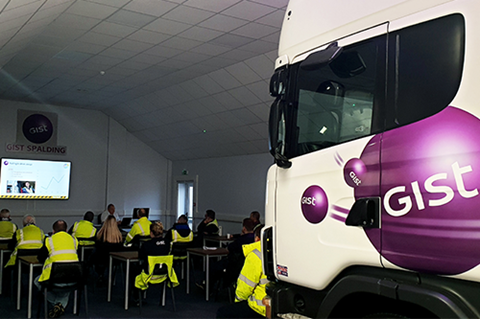The DfT is planning to split the Driver CPC into two, with a new National qualification (N-DCPC) for drivers working only within the UK, and an International version (I-DCPC) for drivers also doing international journeys.

For the N-DCPC, there will be more flexible options to meet the requirement to complete 35 hours of training every five years. Current training courses must be a minimum of seven hours or two 3.5-hour sessions which must be completed in two consecutive days. Under the new proposals the minimum duration of a training course will be removed and when a training course is split the requirement to complete it across two consecutive days will also be removed.
“The intent is to assist busier drivers and operators as it will enable training to fit around business priorities and provide better work-life balance. Additionally, the removal of a time limit between split courses means costs could be spread,” the DfT said.
There will also be more flexible ways to use e-learning to renew an N-DCPC. Currently, a maximum of two hours of e-learning is permitted per trainer-led course, allowing for a maximum of 10 hours of e-learning in every 35 hours of DCPC training.
Under the DfT proposals, the operational requirement that only two hours of e-learning are permitted per trainer-led course, and the requirement that split courses containing e-learning must be completed across two days, will both be removed.
“This would give drivers and their employers more flexibility on when to complete this training, enabling adaption to business and personal needs,” said the DfT.
Logistics UK welcomed these changes, saying they would give “the logistics industry flexibility in how and when training is taken”.
But the association was less happy about the DfT plan to replace training with a periodic test.
“HGV driving is, by its nature, one of the most heavily regulated industries in the economy for a reason – the risks involved for drivers and other road users cannot be overlooked,” said Chris Yarsley, senior policy manager, road freight regulation at Logistics UK. “The industry remains concerned by this proposal, which would replace training with a periodic test – in the opinion of our members, this will not provide sufficient assessment and evaluation to ensure drivers’ abilities are fully tested and should simply be discounted now.”
This test would consist of around 50 multiple choice and situational judgement questions lasting about one to 1.5 hours. The exact content of this new test would be “developed subject to this consultation” but it is expected to cover topics including drivers’ hours, health and safety, defensive/eco/safe driving, customer service and counter terrorism.
The DfT estimates the test would cost in the region of £40 to £70.
This periodic test would also be one option for drivers whose DCPC has lapsed but want to return to driving. Instead of having to complete the 35 hours of training the government is proposing to provide two routes to regaining their qualification: the periodic test or ‘return to driver’ training.
The return to driving module would be seven hours long and “tailored for the needs of experienced drivers”, covering areas such as working time rules, tachographs and load security.
These two routes would only be available to drivers whose qualification had lapsed by more than two months but less than two years to “avoid purposeful short-term lapses by drivers”.
Declan Pang, RHA director of public affairs and policy, England, said: “We support the proposals for greater flexibility in how the 35 hours of training is delivered, greater use of e-learning and a fast route for returning drivers.
“We note that government will consult further on introducing a new periodic test as an alternative to 35 hours of training for drivers looking to renew their DCPC. We believe the periodic test alone is not in line with maintaining safety standards unless it is combined with mandatory training. Therefore, if a test option was to be introduced, it can only be alongside formal training.”
There are no plans to change the way an I-DCPC is renewed to maintain alignment with EU regulations and the Initial Driver CPC qualification obtained as part of the HGV driving test will also be unchanged.
The proposals follow a two-month consultation earlier this year and will require new legislation which is expected to be introduced next year.
















